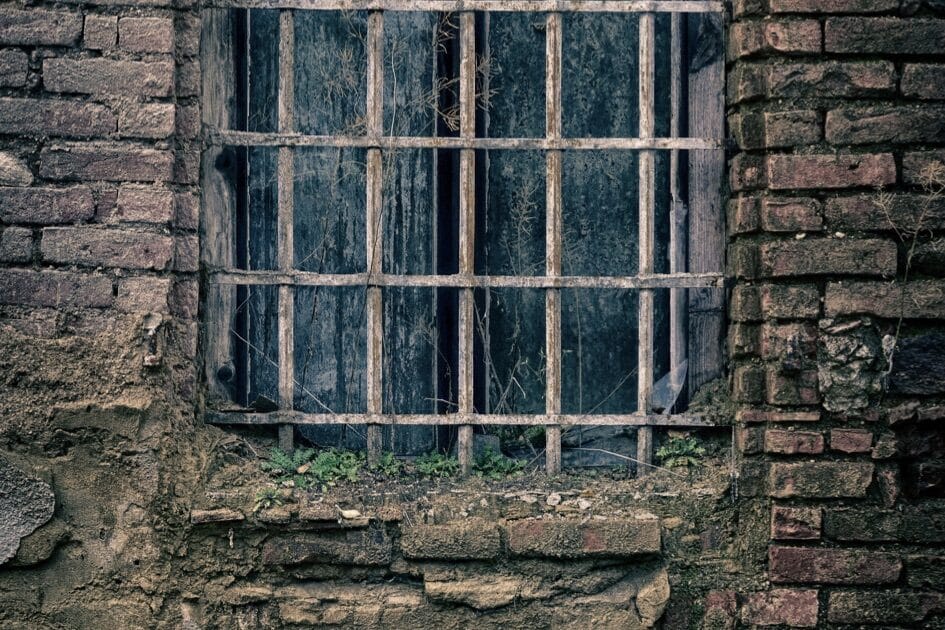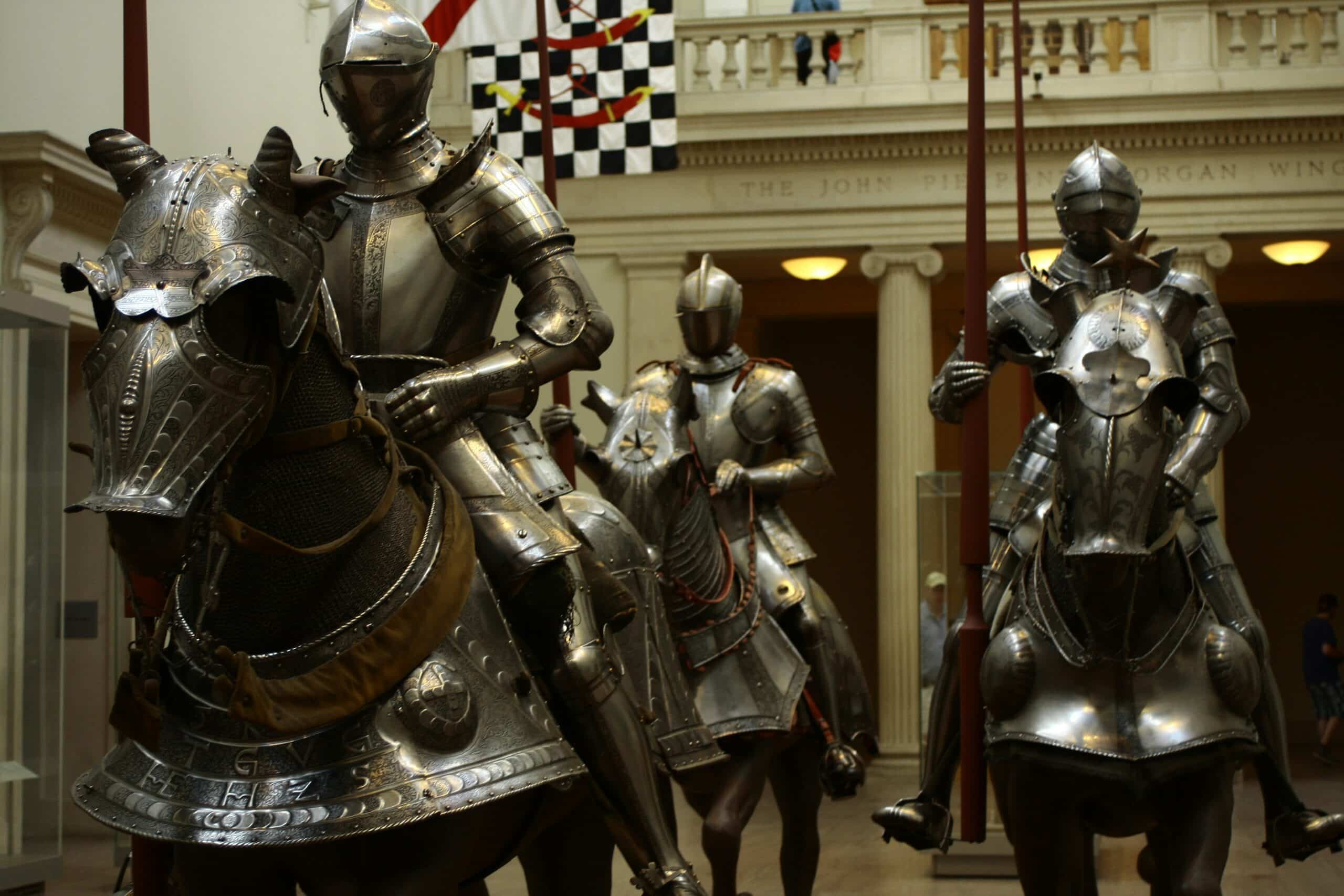
The Hovel
“Hard by here is a hovel. Some friendship will it lend you ‘gainst the tempest.” – King Lear
“Literary experience heals the wound, without undermining the privilege, of individuality.”
C.S. Lewis, An Experiment in Criticism
The literary tradition imaginatively chronicles the experience of sinners and sufferers through the ages. When engaged with, it both enlarges our own limited perspective so we may see compassionately through the eyes of others, and also holds up a mirror to human nature – in particular, our weakness – thereby highlighting our need for true relationship. CenterForLit’s blog, The Hovel, aims to act as a doorway to this kind of community by facilitating life-giving conversation about the reading experience, literary education, and literature’s great ideas.
-

Paltry Deities in “The Heart of the Matter”
Recently, I reread an old college essay I wrote on Graham Greene’s bleak classic, The Heart of the Matter. Immersing myself in thoughts which consumed my every waking hour for a whole semester two years ago, I remembered in a flash how dissatisfied I had been with the resolution of the piece…
-

Anna Karenina and the Givenness of Life
I was in a serious slump this February, drowning in a sea of unaccomplished tasks all loudly condemning my laziness and inefficiency. I felt incapable of stirring up my own enthusiasm for life to get my head above water, no matter how well I organized my planner or how early I set my alarm. But now it’s March, and things are looking up! My long and daunting to-do list is finally beginning to shrink. I’m not saying this to brag. On the contrary, I’m entirely clueless as to how I emerged from my unproductive hibernation…
-

Nightlights and Night Watches: The Unifying Experience of Literature
Two in the morning might just be the loneliest time. The house lies still; only my thoughts run. Lists of what I have done and what I must do alternately congratulate and accuse me, while instant replays of the previous day’s conversations play on my mind’s screen. Soon enough, I flee my bed for the solace of my living room chair. Here I sit in a pool of light with only Marilynne Robinson for company, and one could do worse to chase away night demons…
-

The Lost Transcendental: What About the Moral Imagination?
Ian and I did a lot of driving last year. Having recently moved to the middle of the country, equidistant between our two families with almost mathematical precision, we decided to forego flying home for the holidays in favor of seeing America by car. It was a great idea, and we saw a lot of cool landscapes, but let me tell you there are some areas of this beautiful country that are the very reason the Wright brothers desperately turned to flight. Sorry eastern Colorado, but you are one of them. To pass the time we turned into podcast junkies.…
-

“God forgive us:” The Cloud of Broken Witnesses
In his thrilling novella, Dr. Jekyll and Mr. Hyde, Robert Louis Stevenson paints the inescapable tension between good and evil in the human spirit. Frankly, that by itself is a pretty good summary of his theme. But, there is more to be said about what he implies concerning human desires and the remedies we can find for them. He doesn’t leave us entirely in the dark when it comes to where salvation lies…
-

Great Expectations of the Soul
The first chapter of Charles Dickens’s classic, Great Expectations, deserves its reputation as one of the great openers in literature. The tiny orphan Pip stands at the graveside of his parents, quietly mourning his lonely estate. Suddenly, a fearsome convict, lately escaped from a nearby prison ship, accosts him from the surrounding mists and demands food on pain of death. Pip’s terror in this moment is every bit as palpable as was his grief a moment before. He hurries back to the smithy where he makes his home and, oppressed by unspeakable terror and guilt, steals food from his sister and…
-

2017 Launch Party – Teaching the Classics Overview
2016 was a huge year for us! We began by introducing a new look for the company with a new website and a new logo. We started a new membership society and through it we have met hundreds of wonderful families dedicated to giving their students a literary education. We have worked tirelessly to unveil a second edition of Teaching the Classics and update some of our other beloved products…
-

The Perils of Teaching History Through Literature
Some home school parents think they are killing two birds with one stone when they attempt to teach history through literature. Unfortunately, many of these parents are perpetuating falsehoods, teaching fiction as fact, and training their children to use emotions in order to understand the meaning of the past. There are many reasons why there are separate genres for non-fiction and fiction, and one of the most important is the critical need to teach children how to discern fact from fiction. The blockbuster novel Gone with the Wind is an excellent example of why we cannot teach literature as history.…
-

Image-Bearers and Creators of Worlds
A human being is a creator of worlds. I didn’t realize how great this power is (or how true the statement) until one day last spring when my wife Missy and I were late for a plane in the Atlanta airport. As we approached the TSA security checkpoint, we fought the stress and anxiety you would expect in this situation. I noticed that traffic was being directed down a narrow hallway before spilling out into the familiar back-and-forth, Disneyland-style queue that leads to the metal detectors. On the left side of this passage stood a stern, scowling TSA agent. Her job…
-

A Reason for the Pain: Dostoevsky’s Answer to the Problem of Pain in “The Brothers Karamazov”
“In sorrow, seek happiness.” So says Father Zossima in The Brothers Karamazov, Russian novelist Fyodor Dostoevsky’s literary homage to the problem of pain and suffering. A murder mystery extraordinaire, this novel traces the history of one Ivan Karamazov, eldest brother of the Karamazovs and an intellectual humanist. Frustrated by the problem of evil and its implications regarding the nature of God and His posture toward man, Ivan conceives of atheism as a kind of work around…
-

The In-Between
I’ve been reading a lot of children’s literature recently, due to my role as the Elementary teacher here at CenterForLit. We just finished reading C.S. Lewis’s The Lion, the Witch, and the Wardrobe and I was struck by the youngest brother, Edmund’s, character development. Not a baby any longer to be coddled by his mother or sister, but not yet mature enough to claim a leader’s role like Peter, Edmund is half-baked, sullen, and in-process. When he first comes to Narnia, he falls in with a dangerous crowd. Immature and lustful for recognition and power, he pledges his loyalty to…
-

The Lost Transcendental: Moral and Theme
In my last post, I examined the so-called ancient Greek “transcendentals,” truth, goodness, and beauty, and suggested that if these concepts are meant to describe qualities that bridge the gap between heaven and earth, we might be missing one. And, in fact, this lost transcendental should stand in front of the other three, like a lens that necessarily colors our attitude toward them…
-

“The Wind in the Willows” and the Wonder of the Everyday
A dear friend and former teacher of mine recently said of Kenneth Grahame’s The Wind in the Willows, “If ever there was a children’s book written for adults, it is this one.” I whole heartedly agree, and not only because of the stunning beauty of Grahame’s prose. By way of explanation, I’d like to share a passage from Grahame’s story that, I think, aims right at the heart of his project…
-

Fall Pinterest Fails and the Messy Real
Fall has officially arrived here in northeast Washington. As the air adopts a chill, we are barreling towards the season of harvest parties and hay rides, hot chocolate and flushed faces, pumpkins and apple-cider. Tradition holds that this season affords us all a glowing opportunity to throw open our homes to company. Thanks to Pinterest, we have a vivid picture in our minds of the model autumnal home: decorated but not cluttered, festive but not garish, tidy but just the right amount of “lived in.” If you’re anything like me, you are already laboring under the weight of this impossible…
-

Running the Race: A Lit Lesson in Preparation for Labor Day
Man, that Apostle Paul must have been a lit teacher! Consider how well he chose his metaphors: In a passage of Scripture that is being intoned and memorized by homeschooling parents all over the world this week, he urges his readers to “run in such a way as to get the prize…Go into strict training…to get a crown that will last forever” (I Corinthians 9:24-25). Is there any better image to describe the upcoming year than a race?…
-

Of Lists and Laws: Busy Lives and Back-to-School Plans
August is upon us, and if you’re anything like me, in addition to the sunshine and heat, it brings with it a crushing realization that the long list of summer to-dos that we penned with great hope in late May is not going to be accomplished. Mine sits before me, a glaring accusation. Where did the time go? The bathroom with 18-year-old wallpaper I was going to re-decorate, the vanity I was going to refinish, the pictures I was going to rescue from the vaults of my computer and finally frame on my walls, the books I was going to read, the coffee…
-

The Lost Transcendental: My Only Concern for the Classical Education Movement
Prince Hal is one of my dearest friends. I met him at a critical moment in my life, and in fact, it is not entirely an exaggeration to say he almost single-handedly saved my education. It was the middle of my senior year at Hillsdale College and in order to graduate from the Honors Program, I had to write and defend an interdisciplinary thesis. Having majored in literature and history, I decided to combine my two favorite areas of study by researching Shakespeare’s memory of English history as portrayed in his Henry plays. Every narrative of history is biased according…
-

The Humility of Socratic Discussion
We spent the June session of the Pelican Society’s Office Hours pondering teaching with Socratic discussion. Socratic discussion and teaching is relatively new to me, I’m embarrassed to admit. This probably isn’t as true as I believe, for at its most basic level, Socratic teaching is asking questions, and doesn’t everyone ask questions all the time? Anyone who’s been around a preschooler (or been a preschooler, for that matter) knows this is true. Anyone who’s wondered something, or had a curiosity about something, is asking questions…
-

“The Penderwicks in Spring” and Expectation Games
Do yourself a favor and grab the latest Penderwicks book by Jeanne Birdsall as soon as you can, because it was wonderful! Surrounded by tissues, red-nosed, and teary, I am remembering all of the reasons that this little family is my favorite. Now, before you roll your eyes and pronounce me a hopeless sap for crying over a kids’ book, let me explain…
-

“Tempter, methinks thou art too late:” Grace and Community in The Scarlet Letter
Nathaniel Hawthorne’s legendary novel, The Scarlet Letter, gets a bad rap. It’s set in the Puritan town of Boston, Massachusetts in the 1640s, a time during which the church dictated literally everything about society: not only public policy and government, but also private morality. Hawthorne introduces his main character, Hester Prynne, as she begins what will be a lifelong punishment for the sin of adultery — public condemnation via a scarlet letter ‘A’ worn on her breast…
